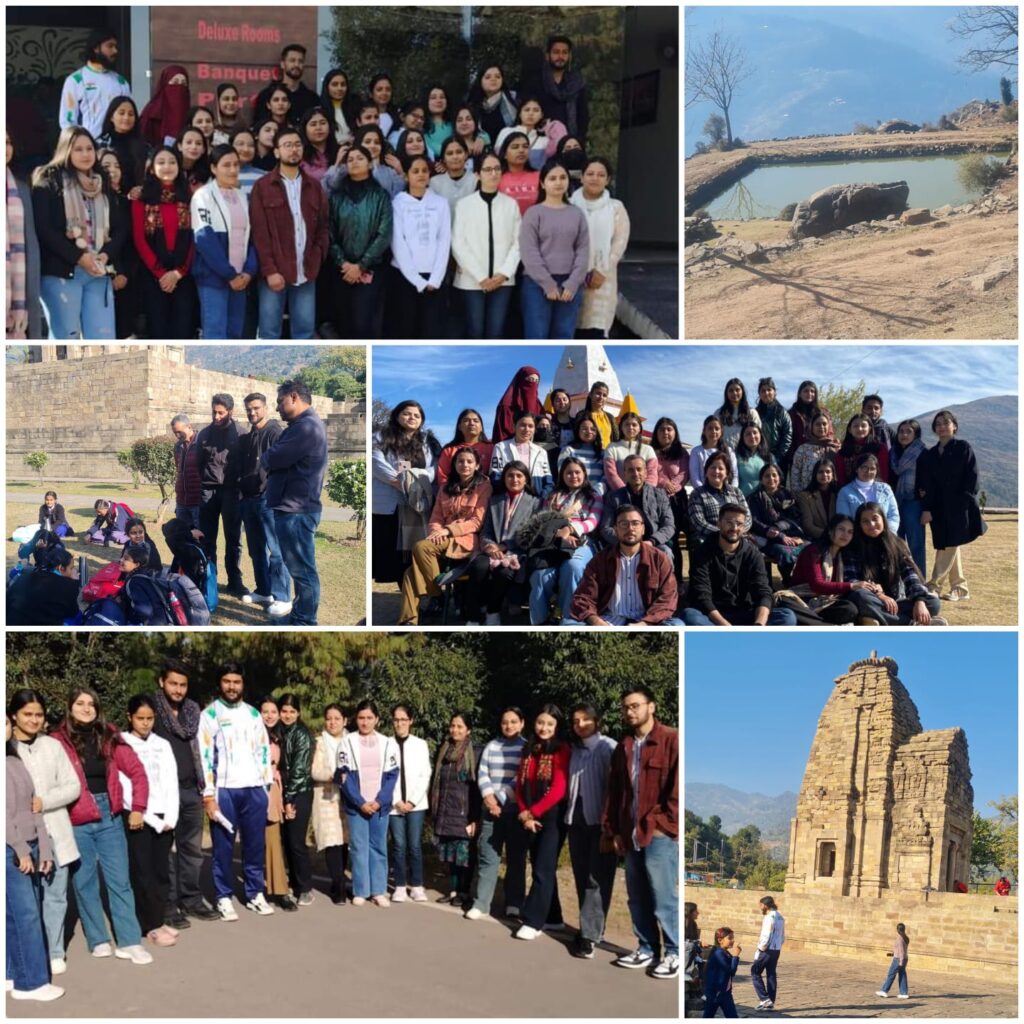Edu-trip to Krimchi-Panchari Circuit organized by Department of Environmental Sciences, University of Jammu
JAMMU December 20: A two-day ‘Edu-trip to ‘Krimchi-Panchari Circuit’ was organised by the Department of Environmental Sciences, University of Jammu. The visit was part of the Viksit Bharat@2047 Campaign, and the purpose of the trip was to expose the students to the rich natural and cultural heritage of the first tourist village in the Jammu division and foster an understanding of village life and sustainable practices.

Prof. Piyush Malaviya, Head of the Department, while flagging off the trip, said that activity-based learning is important to bridge the gap between education and hands-on experience, so moving beyond classroom learning is important. “Field visits and outreach activities in such remote but sustainably developed areas facilitate connections between students and the inhabitants and help students understand the issues of the local rural community and their best practices, which is a first and foremost step to move this important section of society towards the path of Viksit Bharat by 2047,” he added.
During the trip, the students trekked through the lush green Deodar forests at Panchari, which house different varieties of birds, butterflies, and other animals. The students also learned about the wide variety of flora and fauna in the area. After Panchari, the students visited the famous Sankari temple, which is one of the oldest historical temples in the area. The temple is situated on a hillock in the village of Meer and is surrounded by meadows, lofty mountains, and lush green forest.
The students were also shown traditional springs and varied vegetation types in the area. The trip ended with a visit to the ancient structures of archaeological importance at the Krimchi Archaeological Site in Udhampur. Krimchi Temple is a complex of seven ancient temples located on the bank of the stream Birunala in the village of Krimachi, locally known as the Pandava Temples. Students admired the stone carvings and the archaeological beauty.
Dr. Deepika Slathia, the teacher in charge of the trip, emphasised the importance of showcasing rural life to the students and talked about the importance of the traditional water bodies in the area and the need for their conservation. “Such field trips provide the students with enriching hands-on experiential learning as they observe and experience the beauty and activities of rural life, which makes them feel connected,” she said while interacting with the students about their experiences of the trip. Dr. Rakesh Kumar, Dr. Meenakshi Khajuria, and around fifty PG students from the department participated in the edu-trip. At the end of the field trip, there was a thorough analysis and discussion of the findings of the students to draw a conclusion on what they had experienced on the field.
The educational trip helped students recognize the importance of traditional sustainable practices adopted by the villagers, like the use of Gharaats (traditional water flour mills), conserving natural waterbodies like springs, and protecting their biodiversity, thus providing an enriching and knowledgeable experience for the students.
(NOTE: PRESS RELEASE PUBLISHED AS RECEIVED)








